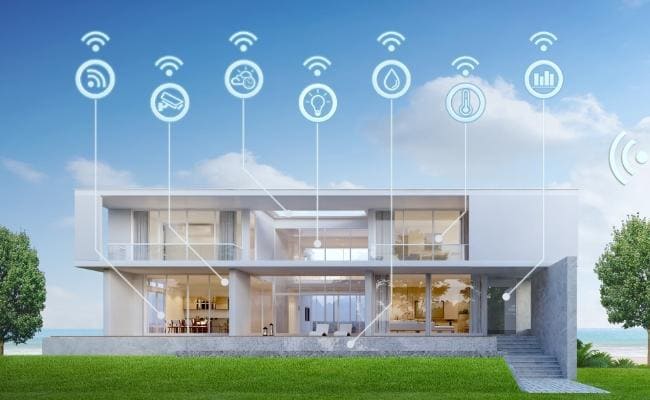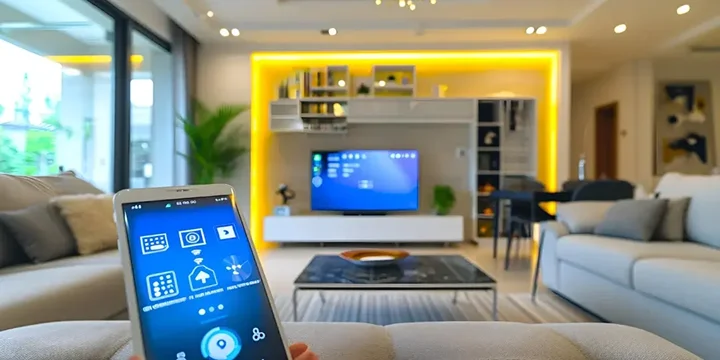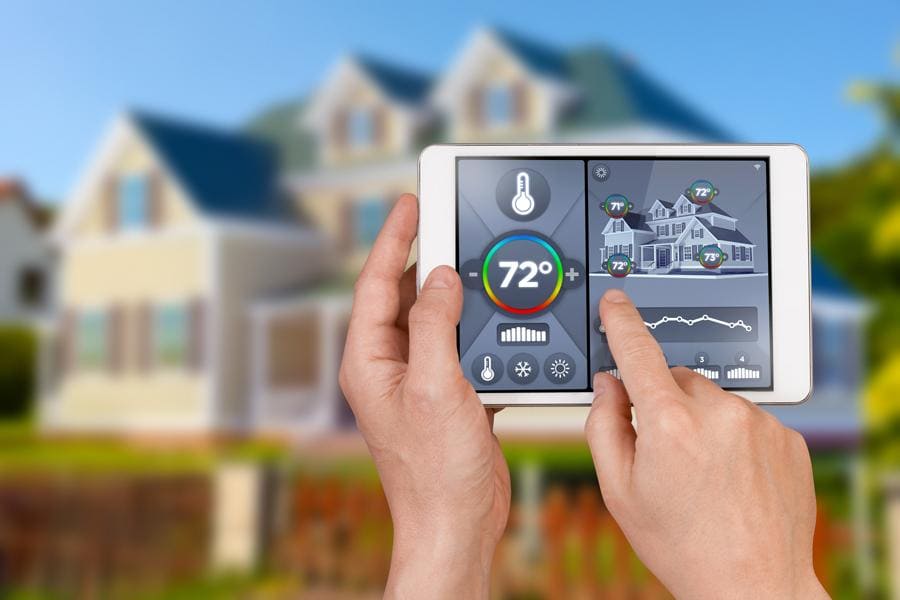The concept of 'home' has profoundly evolved beyond mere shelter. Today, it represents a sanctuary of comfort, efficiency, and personalized experiences, where technology seamlessly integrates into daily life. This transformation is driven by the desire for environments that intuitively adapt to our needs, enhancing convenience and overall well-being. Modern living demands more than just functionality; it requires an intelligent ecosystem that anticipates and responds.
At the heart of this evolution lies the intelligent home system – a sophisticated network of interconnected devices and applications designed to automate and manage various aspects of a living space. From lighting and climate control to security and entertainment, these systems work in harmony to create a truly responsive environment. The integration of these technologies promises a future where homes are not just structures, but active participants in our lives, simplifying routines and enriching experiences.
The benefits of an intelligently designed home are extensive. Imagine waking up to a perfectly lit room, with your preferred temperature already set, and your morning playlist gently starting. These systems offer unparalleled convenience, optimize resource consumption, and provide an elevated sense of security. They transform mundane tasks into automated processes, freeing up valuable time and mental space for residents to focus on what truly matters.
However, the journey to a truly intelligent home is not without its complexities. The sheer variety of technologies, protocols, and devices can be overwhelming for homeowners. Ensuring seamless integration, robust performance, and future scalability requires a deep understanding of both current innovations and emerging trends. A piecemeal approach often leads to fragmented systems that fail to deliver on the promise of true intelligence and cohesion.
This is where specialized expertise becomes indispensable. Vetrasocz excels in translating complex technological possibilities into tangible, seamless living experiences. We understand that every home and every homeowner is unique, necessitating a tailored approach to design and implementation. Our focus is on creating intuitive, reliable, and aesthetically pleasing solutions that genuinely enhance the quality of life within a home.
The future of living spaces is already here, characterized by connectivity and smart automation. These systems are no longer luxury additions but are rapidly becoming central to how we interact with our environments. Embracing this shift with thoughtful design ensures that homes remain comfortable, secure, and adaptable for years to come, truly embodying the essence of modern, intelligent living.
Key Applications and Considerations
-
Environmental Control: Intelligent systems manage heating, ventilation, air conditioning, and lighting. They optimize energy usage based on occupancy and external conditions, leading to significant resource savings and enhanced comfort. Initial setup costs can be a consideration.
-
Security and Access Management: Integrated cameras, smart locks, and alarm systems provide comprehensive protection and remote monitoring capabilities. This offers immense peace of mind but relies heavily on stable network connectivity and secure data handling.
-
Integrated Entertainment & Communication: Seamlessly connect audio-visual systems, streaming services, and inter-room communication. This creates a unified media experience, though rapid technological advancements mean systems may require occasional updates to stay current.
Expert Insights on Intelligent Home Design
A significant discussion within the industry revolves around the choice between open-source platforms and proprietary ecosystems. Proponents of open systems emphasize greater flexibility, customization potential, and reduced vendor lock-in. They argue that open standards foster innovation and allow for broader device compatibility, empowering homeowners with more choices and control over their systems' evolution. However, critics often point to potential complexities in integration and support.
Conversely, closed or proprietary systems are often lauded for their reliability, streamlined integration, and dedicated customer support. These systems typically offer a more polished and user-friendly experience right out of the box, with all components designed to work together flawlessly. The trade-off, however, can be less flexibility and a reliance on a single vendor for updates and compatibility, which some experts view as a limitation for long-term adaptability.
Data privacy and security stand as paramount concerns in the age of connected homes. Experts consistently highlight the need for robust encryption, secure network configurations, and transparent data handling policies. Homeowners must be confident that their personal routines and information are protected from unauthorized access. The design process must prioritize security from the ground up, implementing best practices to safeguard sensitive data within the home's network.
Beyond the technical specifications, the human element remains central to successful intelligent home design. The technology should enhance, not complicate, daily life. Expert opinions stress the importance of intuitive user interfaces and systems that can be easily customized to individual preferences. The goal is to create an environment where technology fades into the background, working silently to support the homeowner's lifestyle rather than becoming a constant point of interaction.
Scalability and future-proofing are also critical considerations. As technology evolves and homeowner needs change, an intelligent home system must be able to adapt. Vetrasocz advocates for modular designs that allow for easy expansion and upgrades without requiring a complete overhaul. This forward-thinking approach ensures that the initial investment continues to provide value and remains relevant in a rapidly changing technological landscape, offering enduring utility.
Designing an intelligent home is ultimately about creating a living space that is not only smart but also truly intuitive and responsive to the needs of its occupants. It's about moving beyond mere automation to cultivate an environment that enhances comfort, efficiency, and overall quality of life in a meaningful way.
The success of such a venture hinges on thoughtful planning and expert execution. A holistic approach, considering every facet from network infrastructure to user interface, is essential for a truly integrated and seamless experience. Professional guidance ensures that all components work in harmony, delivering on the promise of a truly intelligent living space.
When implemented with precision and a deep understanding of both technology and human behavior, an intelligently designed home becomes a testament to modern living. It offers unparalleled convenience, peace of mind, and a dynamic environment that evolves with its inhabitants, setting a new standard for contemporary residential spaces.








This article clearly explains the benefits of intelligent home systems without getting too technical. I appreciate the focus on user experience and the practical applications.